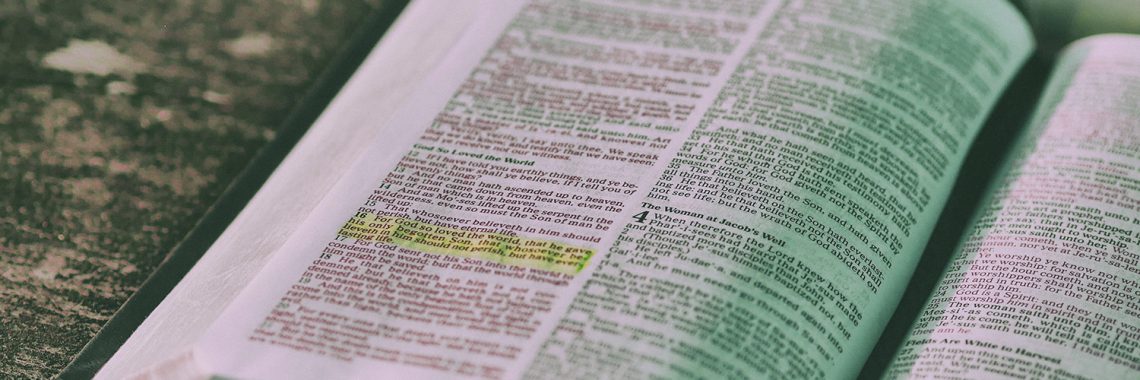“Don’t judge me!” is an increasingly common phrase used to deflect inconvenient questions addressing a perceived lack of personal integrity or honesty. Such a response neither confirms nor rejects the implied concern; it simply rises above it and, at the same time, dismisses the question as scandalously unfair and unjustified. In reality, it discloses a highly individualistic and self-centred attitude, where the person in question sets their own rules, assesses their implementation and justifies breaching them. Those individualistic rules take precedence over any other, be it social conventions, well-established norms or even the law of the land. The impartial rule of law and equality (admittedly imperfect in real life) is replaced by “my rules, my opinion, my truth are the rules, the opinion and the truth.” Such highly individualistic personal independence might seem convenient but doesn’t work in the long term. Those who try to exercise such independence alienate themselves sooner or later. They also miss a chance to be an ever-better version of themselves – because we can achieve that when we respond to questioning and criticism in a positive manner.
“Don’t judge me!” might appear to recall to us Jesus’ stern warning: “Do not judge, so that you may not be judged. For with the judgement you make, you will be judged, and the measure you give will be the measure you get.” (Matthew 7:1-2) However, based on the wider context, it only applied to passing a judgment from an undeserved and unwarranted position of moral superiority. In Jesus’ mind, such judgement is solely reserved for God, who – unlike us – knows everything. Nevertheless, the entire teaching of Jesus can be condensed to a simple rule: “discern what is good and follow it” or – if you prefer a more poetic, biblical way: “He has told you, O mortal, what is good; and what does the Lord require of you but to do justice, and to love kindness, and to walk humbly with your God?” (Micah 6:8) Assessment is one of the most crucial jobs our brains do all the time, preventing us from threats and dangers on the one hand and taking advantage of opportunities on the other. Most of the time, our brains do it on autopilot, semi-consciously. But whatever the mode – sub-, semi- or fully-conscious – our brains use our past experiences to refine their abilities to do things better. We have the power to influence this process; moreover, we should use this power.
Today’s parable presents a moving but also a rather terrifying vision of Judgment Day. There are a couple of significant bits in it. Firstly, the Judgment will apply to everyone: “All the nations will be assembled before him.” Secondly, only one sole criterion will be used to judge everyone: active, charitable love. No wealth, power, influence, political or religious affiliation will matter. The latter might be a particularly terrifying thought for those who invest a lot of time, energy and attention in religious practices, devotions and pieties because they do not guarantee a placement in heaven! I’ve just said a thing that sounded like turkeys voting for Christmas, as my job is to conduct and preside over religious ceremonies and encourage you to take part. I’m putting myself out of a job… And yet, let me reiterate: no religious practices guarantee an automatic placement in heaven. So, what’s the point of following a religion? A simple answer: it’s indispensable!
Think about professional athletes, such as football players. All week long, they come to their training centre, work out in the gym, undergo various treatments with physio, and train as individuals and in the group. Each activity is an important part of the overall training process, which aims to achieve peak performance in the game when it’s tested for real. More importantly, those athletes don’t train on their own. The training regime is developed by their coach, supported by a small army of professionals and supervised all the time. The athletes need impartial feedback to avoid fortifying errors, which would be most likely if they train independently.
Similarly, as imperfect human beings prone to self-centredness combined with self-delusion, we need religious practices to avoid falling back into selfishness and refine our ability to love selflessly. By confronting our motivations, aspirations, dreams, attitudes, behaviour and so on with the word of God, we can navigate the moral maze of everyday life that throws a great variety of challenges and adversities at us. The Eucharist, the Sacrament of Reconciliation, and prayer are among the wonderful and potent instruments we can use to learn and form our power of discernment. Consequently, we can continue to grow into ever-better versions of ourselves, applying the principle of active charitable love to all our actions in line with St Paul’s instruction: “Whatever your task, put yourselves into it, as done for the Lord.” (Colossians 3:23) You might not be directly involved with feeding the hungry or visiting the imprisoned, as mentioned in today’s gospel. But if you do your daily tasks and fulfil your obligations out of charitable love as best you can, you don’t need to be afraid of Judgment Day: “The one who loves another has fulfilled the law.” (Romans 13:8)


